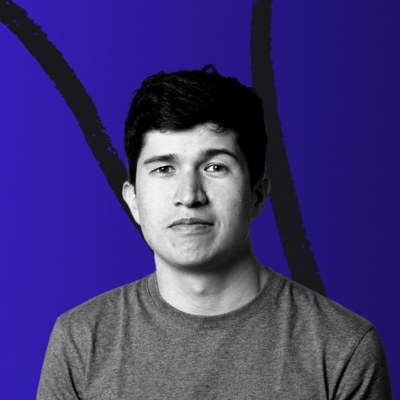
Sponsored By: Reflect
This article is brought to you by Reflect, a beautifully designed note-taking app that helps you to keep track of everything, from meeting notes to Kindle highlights.
You’d think after your fourth time totally rearchitecting your notes system it would occur to you.
You’d think after your tenth time blocking out three hours in the morning for “deep work” you’d learn.
You’d think after your 357th attempt to buckle down and implement a one-touch inbox strategy it would finally get into your thick skull:
“This isn’t working for me. Maybe I should try something else.”
But that’s not actually what happens. What you say to yourself instead is, “This time it’s different. This time it will really work for me.” And you embark on whatever your personal Quixotic productivity quest is for the umpteenth time, only to have it fall apart a month later.
I’ve done this myself a lot, and I’ve also seen a lot of people I respect and admire go through the same productivity cycle. My version of this is trying to get to inbox 0 with willpower alone, or deciding I need to be more authoritarian and detail-oriented in the way I run things at Every. It lasts for like two days and then I’m back to being myself. Fellow Every writer Nat Eliason wrote about it recently on his personal blog in a post entitled, “The Perfect Work Routine”, where he describes trying over and over again to block out a set number of hours each day for deep work only to fail miserably.
These are Productivity White Whales, the things that you try to do again and again but that never quite work for you. They suck, but they can actually teach you something if you pay attention. You can learn how your brain interprets and tells stories that cause you to do things that don’t work, and what you need to let go of in order to be more productive.
I think this perspective is actually quite radical. We’re used to thinking about enhancing our productivity by thinking about what we need to add to our lives: systems, processes, routines etc. But another important part of living a more productive life is knowing what to get rid of—of learning to lose parts of our lives that aren’t working for us even when that feels terrifying.
Reflect is a fast note-taking app designed to model the way you think. Use it as a personal CRM, as a way of taking meeting-notes, or just generally to keep track of everything in your life.
Reflect has integrations into all your favorite tools (calendar, browser, Kindle), so you can always find what you’ve read and researched. We work online or offline, desktop or mobile.
Think faster and clearer with Reflect.
The stories we tell shape the systems we try
Let me take myself as an example. I’ve written a lot about Inbox 0 as one of my productivity White Whales. It usually gets stirred up by a narrative:
I’ll read about one of those people: you know, the Andrew Wilkinsons or Arianna Simpsons—the people who live in their inbox, whose thumbs are a constant blur, who respond within 30 seconds to anything they get. When I read their stories something gets stirred up in me about the kind of person I could be if I was more like them.
First, what happens is I make a connection between the specific thing they’re able to do—get to inbox 0 consistently—and the kind of success they have, and a feeling I imagine they feel all the the time: calm, cool, collected, consistent, and machine-like.
Once I’ve built up that story, I turn my attention to myself. I construct a story that’s something like, If I use this tactic that they use I’d:
- Get to inbox 0 consistently I’d
- Never leave anyone hanging
- This would mean that Every would be an extremely successful business
- This would mean it would meet my basic needs
- This would mean I would be like Andrew or Arianna
- This would mean I’d have this certain kind of feeling about myself that I assume they feel (in control, responsive, calm, collected, consistent—like a machine)
When I write it all out like that it’s quite a lot! My brain is instantaneously building up this gigantic causal story about them and about me. It all happens in a second, as a solid congealed stack of linked, unfolding consequences.
It’s actually quite motivating, because I know what to do next! All I have to do is look at the specific tactic they use to do inbox 0 consistently and then BAM! all of the other consequences will unfold naturally. Sometimes the tactic is a one-touch email strategy, sometimes it’s using Superhuman, sometimes it’s templated responses—but at this point any tactic is worth a shot. So I head back out into the email wilderness having drunk my productivity fire whiskey ready to do the impossible.
But if you look closely you can see the serious flaws in this story that I’m building up about them and about myself—and how they keep me trapped in doing the same things over and over again.
Where the story falls apart
This story falls apart like a house of cards in a hurricane right at its start: the specific tactic I want to use and what I believe are its most direct consequences.
A one-touch email strategy -> Inbox 0 consistently
As it happens, I’ve tried this exact strategy before. But in the moment where I’m about to embark again on a quest to spear my Productivity White Whale, I forget this. Because this time is different. Because this time I’m going to actually try harder, as opposed to all of the other times. What is this temporary insanity? Why do I forget?
The reason is the congealed causal story. Using this tactic is linked to an outcome and a feeling that I want, and it implicitly says to me:
If I can’t use a one-touch inbox strategy to get to inbox 0 consistently I’ll never be like them.
This limits my range of motion in this scenario: I want to be like them, and I must do the things they do. This severely limits my ability to be curious about how my brain works, and how my prior experiences should inform my expectations about the likelihood that this tactic will work for me. So I’ll try again even though it has never worked before. The tactic becomes a pet explanation for why things aren’t working for me.
Let’s talk about how to loosen this up, and actually solve the problem.
. . . .
At the top of this piece I said that learning to work with Productivity White Whales is about learning to let go of certain things. I also said that letting go is an underutilized skill in learning to be more productive over the long term.
So what do I need to let go of in this situation?
Well, first, I need to examine my Inbox 0 tactic a bit more closely. If I do that I can see there’s an interesting link in the chain that I missed before:
One-touch email strategy -> Try harder -> Inbox 0 consistently
I have a tactic I want to apply to solve my problem, but the active ingredient isn’t the tactic—it’s actually just that I think this time I’ll try harder. I know this is true because I’ve tried one-touch email strategies before and they’ve never worked before.
Once I realize that the active ingredient in my new tactic is just willpower, and that willpower has historically failed me, I can ask myself another question:
How could I get to inbox 0 more consistently without relying on willpower?
I feel a twinge at this. I don’t want to ask myself this question because the ability to exert willpower is linked to all the way up the chain in my story. If I can’t rely on willpower, then I might not be like Andrew or Arianna, and I won’t have the success they have, and I won’t feel the things they feel.
Feeling that twinge means that relying on willpower is a good candidate for what I might need to learn to let go of. There’s no reason I should be ashamed about my limited willpower in this domain—in fact, pretending that I have unlimited willpower is the thing that is keeping me stuck in doing the same thing over and over again, and consequently from finding what works.
. . .
In fact, this is exactly what happened for me. Once I was willing to actually admit that I have a pattern of not being good at my inbox, and also admit that willpower alone wasn’t working for me to fix it…things started to change.
I was able to observe my patterns of behavior, and understand my pile avoidance. And then I was able to come up with a weird solution that actually works for me:
I have my VA check up on me to make sure I’m getting through my inbox every few days. Adding a little bit of social accountability completely changed things for me—but I never would’ve been open to that if I hadn’t first let go of the idea that I needed to do this by willpower alone.
This works quite well for me, and I think it will work for you too. To get started just, set some time aside and ask yourself these questions:
- What are your Productivity White Whales?
- What narratives and people tend to stir them up?
- And what might you need to let go of?
Let me know how it goes!
I’m doing a very limited amount of 1-1 coaching, and I have 1-2 slots open. If you’re interested in coaching from me let me know here.
The Only Subscription
You Need to
Stay at the
Edge of AI
The essential toolkit for those shaping the future
"This might be the best value you
can get from an AI subscription."
- Jay S.
Join 100,000+ leaders, builders, and innovators

Email address
Already have an account? Sign in
What is included in a subscription?
Daily insights from AI pioneers + early access to powerful AI tools











Comments
Don't have an account? Sign up!